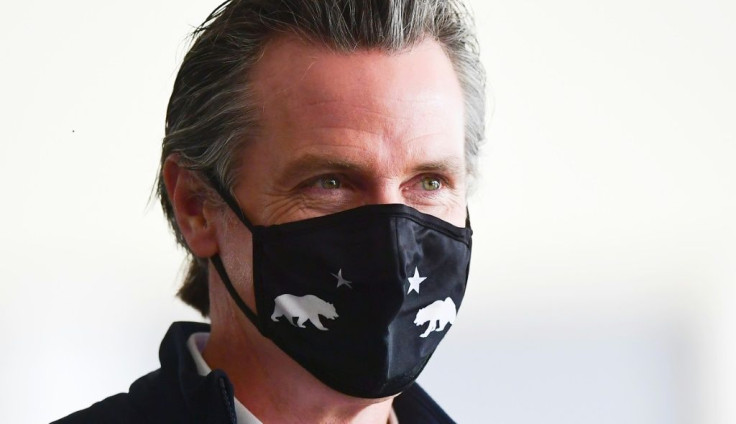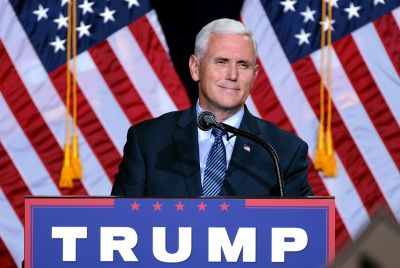Why Is Gov. Gavin Newsom Being Recalled? Confused Reasoning May Spell Doom For His Opponents
California Gov. Gavin Newsom faces a recall election in the fall that seems to share little resemblance to the 2003 recall of Democrat Gray Davis.
Republican Arnold Schwarzenegger saw an improbable victory in 2003 when the state was burdened with an electricity crisis and Davis failed to win the previous election by a sizable margin.
The political climate in California now, however, is much different, and lacks a candidate with the same appeal as Schwarzenegger, a Hollywood actor married to the niece of former President John F. Kennedy.
Months after the new recall effort began, Newsom seems increasingly unlikely to be unseated and, unlike Davis, is enjoying strong approval ratings. With a crowded field and only 40% of voters supporting the recall, his challengers face an uphill battle to reach the 50% threshold needed to claim victory.
A big stumbling block for prospective candidates is finding an overriding reason to replace Newsom. The recall petition’s organizers leveled a number of accusations against Newsom during the height of the pandemic, alleging that he prefers undocumented immigrants to U.S. citizens and complaining of high taxes and homelessness.
The petition reads: "Laws he endorsed favor foreign nationals, in our country illegally, over that of our own citizens. People in this state suffer the highest taxes in the nation, the highest homelessness rates, and the lowest quality of life as a result. He has imposed sanctuary state status and fails to enforce immigration laws. He unilaterally overruled the will of the people regarding the death penalty. He seeks to impose additional burdens on our state by the following; removing the protections of Proposition 13, rationing our water use, increasing taxes and restricting parental rights."
The discourse has since shifted to the pandemic and its economic impact, but California has recently seen a stunning recovery from the pandemic, which has eased pressure from Newsom.
The recall technically hasn’t even begun. A petition to begin a recall vote was submitted in February. It has gained enough signatures to force the election, but they are still being counted. After various procedural matters, the recall could be delayed until November.
Nevertheless, a wide variety of candidates have already thrown their hats into the ring.
Reality television star and former Olympian Caitlyn Jenner is one of the highest-profile candidates. The Republican offered a stumbling interview with Sean Hannity that wound up focusing attention more on Jenner's private jets than policy.
Republican businessman John Cox attracted attention for his use of a live Kodiak bear at campaign stops, predictably sparking outrage from animal rights groups and those concerned with his supporters’ right not to be mauled by massive, unpredictable animals.
In 2018, Newsom defeated Cox in a landslide, 61.9% to 38.1%.
Along with Cox and Jenner, there is a long list of candidates looking to unseat Newsom.
- John Cox
- Rep. Doug Ose, former California congressman
- Caitlyn Jenner, former Olympic athlete and transgender celebrity activist
- Adam Hadjinian
- James Hanink, former professor
- Luis Huang, former Irvine mayoral candidate
- Chauncey Killens
- Paul Kurdian
- Robert Newman II
- Patrick Rakus, Jr.
- Sarah Stephens, pastor
- Joe Symmon
- Kevin Faulconer, former San Diego Mayor
- Sam Gallucci, pastor and tech entrepreneur
- Major Williams, former candidate for Mayor of Pasadena
- Mando Perez-Serrato, California sporting goods store owner
- Mary Carey, former adult film star and 2003 gubernatorial candidate
- Jeff Hewitt, Riverside County supervisor
Most are running as Republicans, highlighting the first problem facing Newsom’s challengers: the sheer number of contenders coincides with a voting coalition that can scarcely afford to split its support.
A Democrat might be the only true challenger to Newsom.
.@danschnur told @latimes that if Gov. Gavin Newsom were to face a Democratic challenger in his recall election, it would take away “Newsom’s strongest talking point — that it’s all a partisan exercise.” https://t.co/BBuX2XQoDN
— USC Annenberg (@USCAnnenberg) March 22, 2021

© Copyright IBTimes 2024. All rights reserved.





















